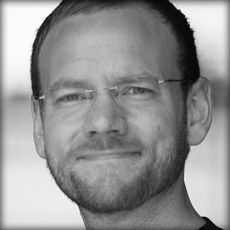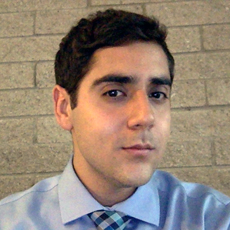RESTlab
Broadly speaking, our lab focuses on individual differences in risk and resilience for adverse mental and physical health outcomes, and potential mechanisms underlying these associations. The individual differences of interest include personality, cognitive (especially executive) functioning, and psychophysiological factors (especially tonic respiratory sinus arrhythmia [RSA]).
This research focuses on the interrelations among these individual differences in risk and resilience in the context of stress regulation (i.e., stress exposure, reactivity, recovery, and restoration).
Current research is particularly focused on restoration and stress, including
- phenotypic and endophenotypic characteristics of habitual short sleepers, and
- individual differences in the experience of aesthetic stimuli (i.e., art, nature, and beauty)
Current Studies
Short Sleeper Study

Approximately 30% of adults in the United States say they regularly sleep 6 hours or less each day. These people have been described as "habitual short sleepers". Some habitual short sleepers say that they feel refreshed and function well on little sleep. Other habitual short sleepers say that they feel drowsy during the day and notice negative changes in their mood, thinking, and overall health.
More InfoAesthetic Study

People vary widely in how they respond to “aesthetic” stimuli such as art, nature, poetry, music, and film. Some individuals have strong emotional and physiological responses, especially goosebumps or sensations of shiver and chill. Approximately half the population denies such experiences, making this a unique emotional phenomenon.
More InfoShort Sleeper Study

Short Sleeper Study
Approximately 30% of adults in the United States say they regularly sleep 6 hours or less each day. These people have been descrobed as "habitual short sleepers". Some habitual short sleepers say that they feel refreshed and function well on little sleep. Other habitual short sleepers say that they feel drowsy during the day and notive negative changes in their mood, thinking, and overall health.
What are the differences between these two groups of short sleepers? Are there some people who can get away with less sleep than the rest of us?
This study will examine sleep patterns, mood, attention, personality, health, driving abilities, pain tolerance, and brain functioning in short sleepers, conventional sleepers, and their romantic partners. You do not need to have a romantic partner to participate. As a participant in this study, you will be compensated for:
Phase 1 Participation: Completed from your home (14 days)
- Complete online questionnaires about your typical sleep schedule, personality, and mood.
- Continuously wear a watch-sized activity recorder on your wrist, complete a daily sleep diary, and a brief (less than 5 minute) phone-based test of your reaction time for 14 days.
Phase 2 Participation: Completed at the University of Utah (3 to 4 hours)
- Complete about 40 minutes of noninvasive brain wave recording called electroencephalography (EEG) while you're reclining in a chair. We will collect heart functioning recordings (electrocardiography; ECG) at the same time as the EEG recordings.
- While wearing the EEG and ECG monitors, complete the following: (a) computer-based questionnaires about your personality and behavior; (b) a test of your thinking, attention, hand movement speed, and processing speed; (c) a brief test of your pain sensitivity and pain tolerance using a handheld device that will slowly apply pressure to three parts of your body; and (d) a driving simulator.
Interested in participating in this study?
Please click here to see if you qualify!
Aesthetic Study

Aesthetic Study
People vary widely in how they respond to “aesthetic” stimuli such as art, nature, poetry, music, and film. Some individuals have strong emotional and physiological responses, especially goosebumps or sensations of shiver and chill. Approximately half the population denies such experiences, making this a unique emotional phenomenon.
This study examines personality, physiology, and brain functioning in response to stimuli (written material, photos, music, videos) that may evoke particular emotional responses. We want to understand the characteristics of people who do and do not have strong emotional and physiological responses to these stimuli.
As a participant in this study, you will be compensated for:
Phase I - Completed at the University of Utah Behavioral Sciences Building (about 2 hours):
- Complete 10 minutes of resting, cardiac functioning (electrocardiography; ECG), and blood pressure recording.
- While wearing the ECG monitors, view and listen to a variety of visual and auditory stimuli and rate your emotions.
- While wearing the ECG monitors, complete an in-person test of your thinking, attention, hand movement speed, and processing speed.
- Complete questionnaires about your personality, stress, and mood.
Phase II - Completed at the University of Utah Imaging and Neurosciences Center Building (about 1 hour):
- Complete approximately 1 hour of non-invasive brain activity imaging called functional magnetic resonance imaging (fMRI).
Interested in participating in this study?
People

Paula G. Williams
Dr. Williams is interested in understanding how and why people differ in their experience of stress. Current research is particularly focused on individual differences in aesthetic engagement (i.e., responses to art, nature, and beauty), mechanisms for and consequences of habitual short sleep duration, and vocal acoustics as an indicator of sleep and stress processes. A long-term goal is the development of an individual difference, multi-process framework for online stress assessment and intervention.

Brian Curtis
Brian is interested in the role of sleep disruption across a wide range of mental health disorders. In particular, he is interested in the health impacts of chronic short sleep duration and discrepancies between self-reports and objective measures of daytime functioning.

Kimberley Johnson
Kimberley is interested in the mechanisms underlying stress restoration, and will be examining how individual differences interact with these processes to impact physical and mental health. Ultimately, she would like to contribute to the development of integrative interventions that interrupt trajectories of dysregulation and promote resilient responding to stress.

Ruben Tinajero
Ruben is broadly interested in the relationship between executive functioning and stress regulation, including stress exposure, reactivity, recovery and restoration. Currently, he is focusing on the investigation of daytime dysfunction correlates (e.g. fatigue, cognitive dysfunction) among healthy individuals with nonrestorative sleep.
Publications
- Suchy, Y., Franchow*, E., Niermeyer*, M., Ziemnik*, R., Williams, P.G., Pennington*, N. (in press). Exaggerated reaction to novelty as a predictor of incipient cognitive decline among community-dwelling older adults. Clinical and Experimental Neuropsychology.
- Tinajero*, R., Williams, P.G., Cribbet*, M.R., Rau*, H.K, Bride*, D.L., & Suchy, Y. (in press). Nonrestorative sleep in healthy adults without insomnia: Associations with executive functioning, fatigue, and pre-sleep arousal. Sleep Health.
- Williams, P.G., Tinajero*, R., & Suchy, Y. (2017). Executive functioning and health. Oxford Reviews Online. DOI:10.1093/oxfordhb/9780199935291.013.7
- Gunn*, H.E., Critchfield, K., Mackaronis*, J., Rau*, H.K, Cribbet*, M.R., & Williams, P.G. (2017). Affiliative interpersonal behaviors during stress are associated with sleep quality, and pre-sleep arousal in healthy, young adults. Sleep Health, 3, 98-101.
- Grove*, J., Smith, T.W., Crowell, S.E., Williams, P.G., & Jordan, K.D. (2017). Borderline personality features, interpersonal correlates, and blood pressure response to social stressors: Implications for cardiovascular risk. Personality and Individual Differences, 113, 38-47.
- Williams, P.G., Rau*, H.K., Suchy, Y., Thorgusen*, S., & Smith, T.W. (2017). On the validity of self-report assessment of cognitive abilities: Attentional Control Scale associations with cognitive performance, emotional adjustment, and personality. Psychological Assessment, 29, 519-530.
- Curtis*, B.J., Williams, P.G., Jones, C.R., & Anderson, J.S. (2016). Sleep duration and resting fMRI functional connectivity: Examination of short sleepers with and without perceived daytime dysfunction. Brain and Behavior, 0:1–13. e00576, doi: 10.1002/brb3.576
- Smith, T.W., & Williams, P.G. (2016). Assessment of social traits in married couples: Self-reports versus spouse ratings around the interpersonal circumplex. Psychological Assessment, 28, 726-736.
- Smith, T. W., Williams, P.G., & Ruiz, J.M. (2016). Clinical health psychology. In J.C. Norcross, G.R. VandenBos, and D.K. Freedheim (Editors-in-Chief), APA Handbook of Clinical Psychology: Vol. 1 Roots and Branches (pp. 223- 257). Washington, D.C.: American Psychological Association.
- Rau*, H.K., & Williams, P.G. (2016). Dispositional mindfulness: A critical review of construct validation research [Special Issue: Mindfulness]. Personality and Individual Differences, 93, 32-43.
- Rau*, H.K., Suchy, Y., Butner, J.E., & Williams, P.G. (2015). Latent profiles of executive functioning in healthy, young adults: Evidence of individual differences in hemispheric asymmetry. Psychological Research, DOI 10.1007/s00426-015-0706-5.
- Jordan*, K.D., Williams, P.G., & Smith, T.W. (2015). Interpersonal distinctions among hypochondriacal traits: Styles, goals, vulnerabilities, and perceptions of health care providers. Journal of Social and Clinical Psychology, 34, 459-475.
- Smith, T., & Williams, P.G. (2015). Self-reports and spouse ratings of neuroticism: Perspectives on emotional adjustment in couples. Journal of Family Psychology, 29, 302-307.
- Smith, T.W., Williams, P.G., & Segerstrom, S.C. (2015). Personality and physical health. In L. Cooper and R. Larsen (Eds), APA Handbook of Personality and Social Psychology (Vol 4): Personality Processes and Individual Differences (pp. 639-661). Washington, D.C.: American Psychological Association.
- Cribbet*, M.R., Carlisle*, M., Cawthon, R.M., Uchino, B., Williams, P.G., Smith, T.W., Gunn*, H.E., & Light, K.C (2014). Cellular aging and restorative processes: Subjective sleep quality and duration moderate the association between age and telomere length in a sample of middle-aged and older adults. SLEEP, 37, 65-70.
- Williams, P.G., Suchy, Y., & Kraybill, M.L. (2013). Preliminary evidence for low Openness to Experience as a pre-clinical marker of incipient cognitive decline among older adults. Journal of Research in Personality, 47, 945-951.
- Williams, P.G., Cribbet*, M.R., Rau*, H.K, Gunn*, H.E., & Czajkowski, L. (2013). The effects of poor sleep on cognitive, affective, and physiological responses to a laboratory stressor. Annals of Behavioral Medicine, 46, 40-51.
- Franchow*, E., Suchy, Y., Thorgusen*, S., & Williams, P.G. (2013). Beyond education: The contribution of Openness to cognitive reserve in older adulthood. Journal of Aging Sciences, 1, 109. doi: 10.4172/2329-8847.1000109
- Smith, T.W., & Williams, P.G. (2013). Behavioral medicine and clinical health psychology. In M. J. Lambert (Ed), Bergin and Garfield’s Handbook of Psychotherapy and Behavior Change (pp. 690-734). New York: John Wiley & Sons.
- Crowell, S., Skidmore*, C., Rau*, H.K., & Williams, P.G. (2013). Psychosocial stress, emotional regulation, and resilience in adolescence. In W. O’Donohue, L. Bennuto, & L.W. Tolle (Eds.), Handbook of adolescent health psychology. New York, NY: Springer.
- Hartz, A., Ross, J.J., Noyes, R., & Williams, P.G. (2013). Somatic symptoms and psychological characteristics associated with insomnia in postmenopausal women. Sleep Medicine, 14, 71-78.
- Cribbet*, M.R. & Williams, P.G. (2012). Personality. In M.D. Gellman & J.R. Turner (Eds.) Encyclopedia of Behavioral Medicine, New York, NY: Springer.
- Rau*, H. & Williams, P. (2012). Illness Cognitions and Perceptions. In M.D. Gellman & J.R. Turner (Eds.), Encyclopedia of Behavioral Medicine. New York, NY: Springer.
- Rau*, H. & Williams, P. (2012). Illness Behavior. In M.D. Gellman & J.R. Turner (Eds.), Encyclopedia of Behavioral Medicine. New York, NY: Springer.
- Smith, T. W., Cribbet*, M. R., Nealey-Moore, J. B., Uchino, B. N., Williams, P. G., MacKenzie*, J., & Thayer, J. F. (2011). Matters of the variable heart: Respiratory sinus arrhythmia as an index of sex differences in self-regulation in marriage. Journal of Personality and Social Psychology, 100, 103-119.
- Cribbet*, M. R., Williams, P. G., Gunn*, H. E., & Rau*, H. K. (2011). Interactive effects of tonic and phasic respiratory sinus arrhythmia on affective responses to stress. Emotion, 11, 188-193.
- Williams, P. G., Smith, T. W., Gunn*, H. E., & Uchino, B. N. (2011). Personality and stress: Individual differences in exposure, reactivity, recovery, and restoration. In Contrada, R. & Baum, A. (Eds.), Handbook of stress science: Biology, psychology, and health (pp. 231-245). New York, NY: Springer.
- Williams, P. G., & Suchy, Y. (2011). Temperament, personality, and heritability of individual differences in executive functioning. In Y. Suchy, Clinical Neuropsychology of Emotion, Part IV. pp. 223-234. New York: Guilford Press.
- Williams, P. G., & Suchy, Y. (2011). Stress regulation, executive functioning, and physical and mental health. In Y. Suchy, Clinical Neuropsychology of Emotion, Part IV. pp. 235-246. New York: Guilford Press.
- Williams, P. G. (2010). Commentary: Self-regulation, executive functioning, and neurovisceral integration. Pain, 151, 5-6.
- Williams, P. G., Suchy, Y., & Kraybill*, M. L. (2010). Five-Factor Model personality traits and executive functioning in older adults. Journal of Research in Personality, 44, 485-491.
- Williams, P. G., Smith, T. W., & Jordan*, K. D. (2010). Health anxiety and hypochondriasis: Interpersonal extensions of the cognitive-behavioral perspective. In Beck, G. (Ed.), Interpersonal processes in the anxiety disorders: Implications for understanding psychopathology and treatment. pp. 261-284. American Psychological Association.
- Suchy, Y., Williams, P. G., Kraybill, M. L., Franchow*, E., & Butner, J. (2010). Instrumental activities of daily living among community-dwelling older adults: Personality associations with self-report, performance, and awareness of functional difficulties. The Journals of Gerontology, Series B, Psychological Sciences and Social Sciences, 65, 542-550.
- Williams, P. G., Rau*, H. K., Cribbet*, M. R., & Gunn*, H. E. (2009). Openness to Experience and stress regulation. Journal of Research in Personality, 43, 777-784.
- Williams, P. G. & Thayer, J. F. (2009). Executive functioning and health: Introduction to the Special Series. Annals of Behavioral Medicine, 37, 101-105.
- Williams, P. G., Suchy, Y., & Rau*, H. K. (2009). Individual differences in executive functioning: Implications for stress regulation. Annals of Behavioral Medicine, 37, 126-140.
- Williams, P. G. & Moroz*, T. L. (2009). Personality vulnerability to stress-related sleep disruption: Pathways to adverse mental and physical health outcomes. Personality and IndividualDifferences, 46, 598-603.
- Williams, P. G., Smith, T. W., & Cribbet*, M. R. (2008). Personality and health: Current evidence, potential mechanisms, and future directions. In G. J. Boyle, G. Matthews, & D. H. Saklofske (Eds.), Personality theory and assessment: Vol. 1 Personality theories and models. pp. 635-658 Thousand Oaks, CA: Sage.
- Hutchinson*, J. G., & Williams, P. G. (2007). Neuroticism, daily hassles, and depressive symptoms: An examination of moderating and mediating effects. Personality and Individual Differences, 42, 1367-1378.
- Williams, P. G. (2006). Personality and illness behavior. In M. Vollrath (Ed.), Handbook of personality and health. pp. 157-173. West Sussex, UK: Wiley.
- Williams, P. G., & Gunn*, H. E. (2005). Gender, personality, and psychopathology. In M. Hersen, J. C. Thomas (Series Eds.) & J. C. Thomas, D. L. Segal (Vol. Eds.), Comprehensive handbook of personality and psychopathology: Vol. 1 Personality and everyday functioning. pp. 432-442 Hoboken, NJ: Wiley.
*student co-author